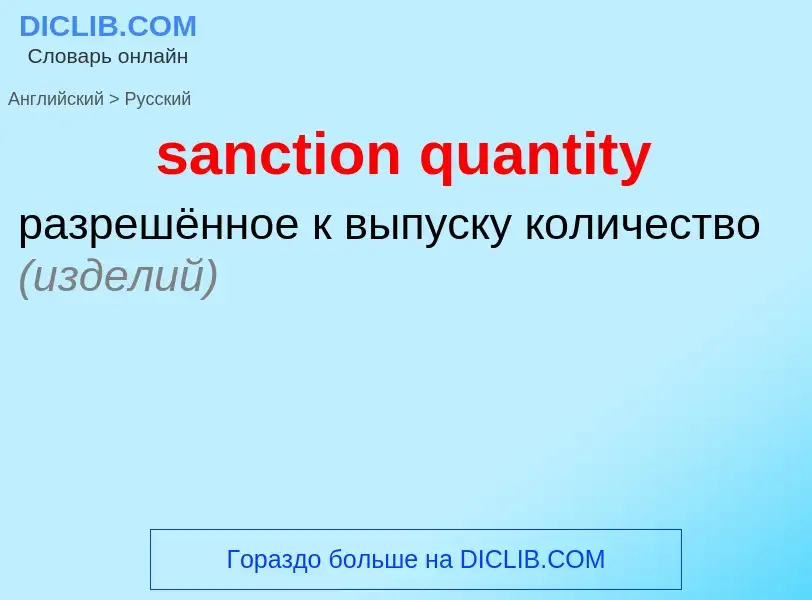Traduction et analyse de mots par intelligence artificielle ChatGPT
Sur cette page, vous pouvez obtenir une analyse détaillée d'un mot ou d'une phrase, réalisée à l'aide de la meilleure technologie d'intelligence artificielle à ce jour:
- comment le mot est utilisé
- fréquence d'utilisation
- il est utilisé plus souvent dans le discours oral ou écrit
- options de traduction de mots
- exemples d'utilisation (plusieurs phrases avec traduction)
- étymologie
sanction quantity - traduction vers russe
бухгалтерский учет
составление сметы (как правило, на совершение строительных работ)
строительное дело
составление ведомости объёмов строительных работ (для сметы)
обмер выполненных строительных работ
синоним
Définition
Wikipédia
Sanctions, in law and legal definition, are penalties or other means of enforcement used to provide incentives for obedience with the law, or with rules and regulations. Criminal sanctions can take the form of serious punishment, such as corporal or capital punishment, incarceration, or severe fines. Within the context of civil law, sanctions are usually monetary fines, levied against a party to a lawsuit or their attorney, for violating rules of procedure, or for abusing the judicial process. The most severe sanction in a civil lawsuit is the involuntary dismissal, with prejudice, of a complaining party's cause of action, or of the responding party's answer. This has the effect of deciding the entire action against the sanctioned party without recourse, except to the degree that an appeal or trial de novo may be allowed because of reversible error.
As a noun, the term is usually used in the plural form, even if it only refers to a single event: if a judge fines a party, it is not said that they imposed a sanction, but that they imposed sanctions.
A judge may sanction a party during a legal proceeding, by which it is implied that they impose penalties. In the United States federal court system, certain types of conduct are sanctionable under Rule 11 of the Federal Rules of Civil Procedure.
Conversely and sometimes confusingly, the word may be used to imply "approve of," especially in an official sense. "The law sanctions such behavior" would imply that the behavior spoken of enjoys the specific approval of law.
To sanction implies make a legal agreement. The word is derived from sanctus, to make holy. A legal agreement or sanction imposes approvals, rules, guidelines and penalties on conduct.

